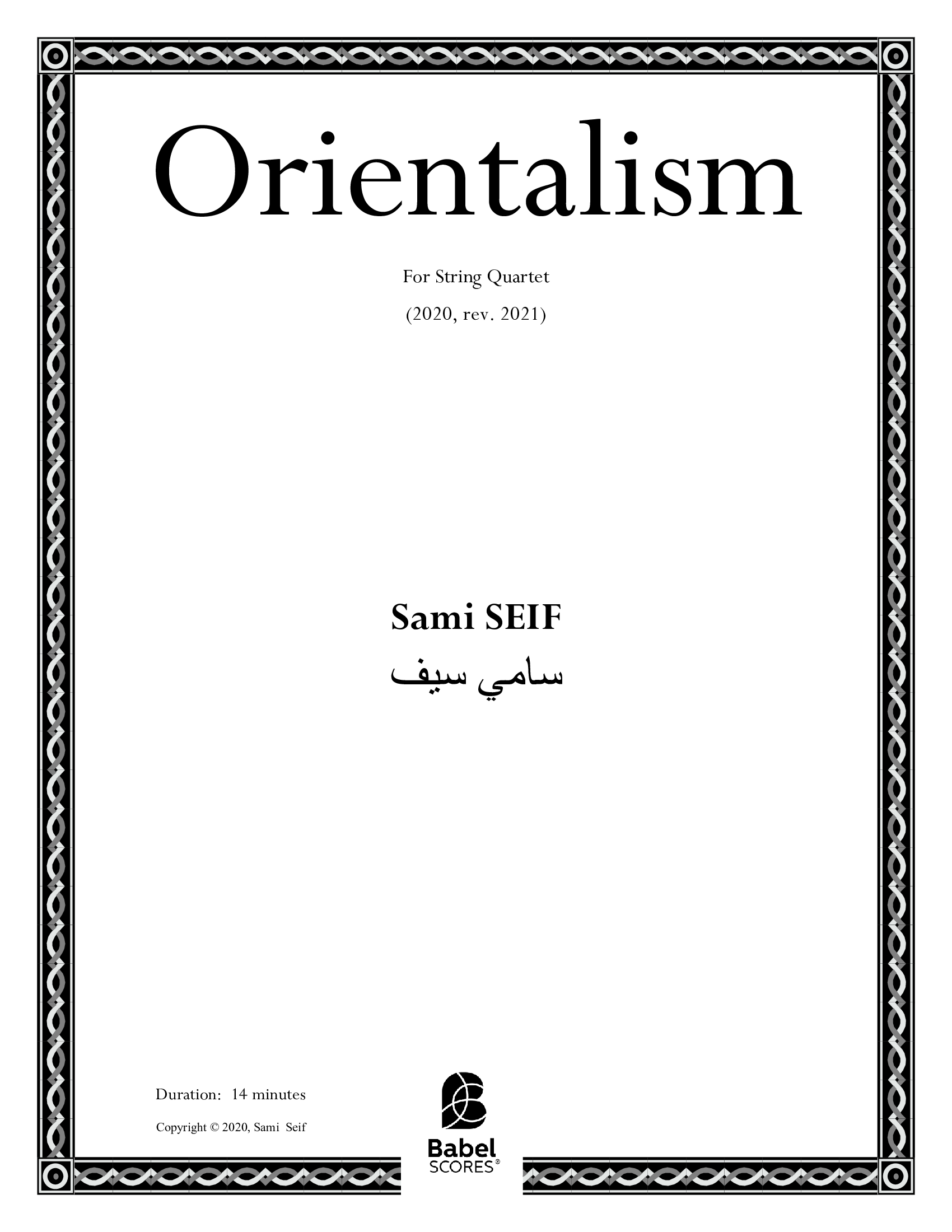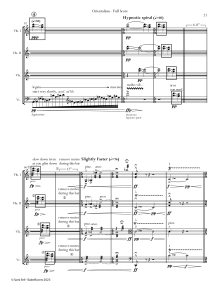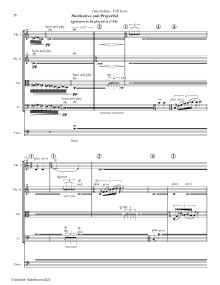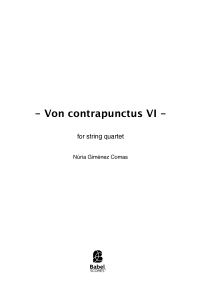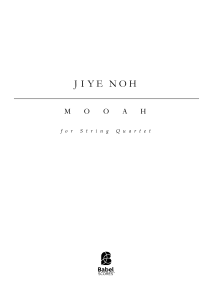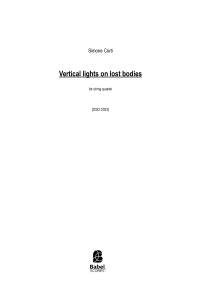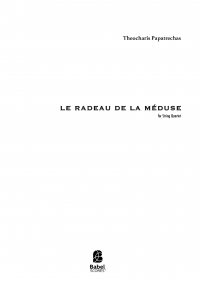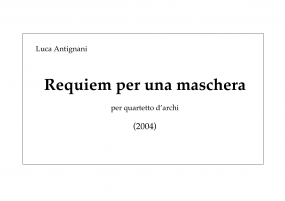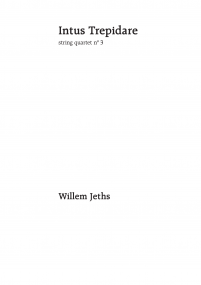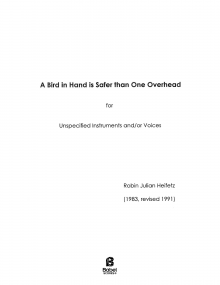Orientalism
ISMN : 979-0-2325-7029-7
- Login to create your own lists
Orientalism derives its name from the eponymous book by the Palestinian-American intellectual Edward Said. My interest in orientalism started with the constant disparity I felt between my experience of being an Arab, and the representations of Arabs which I saw in art, media, and what even claimed to be scientific literature. Those representations of “the Orient” had very little to do with what I know about my own background, my lived experiences, and everything that I have read in Arabic. This piece is a result of my reflections, it is a commentary as well as an artistic response to that phenomenon.
Another interest of mine has been the passage of time, especially the passage of musical time, as opposed to chronometric time. In my quartet, the measurement of time is passed from player to player, so as to create a flowing evolution of the sense and function of time. As each player takes control of measuring time for the whole ensemble, a natural shift in the perception of time will occur for interpreters and audience alike. The passage of time thus interacts with perspective and with focus. Every player will get the chance to manifest their experience of time, resulting in four different perspectives on the flow of time. These different time-layers ultimately create a counterpoint of tempi between players. Essentially, my quartet intersects my interests in Orientalism and the passage of time – both of which are part and parcel of phenomenology, of conscious experience.
Unlike a traditional string quartet, which seeks to blend the individual player with the quartet, my piece seeks to identify the individual in opposition to the ensemble. Just as time flows smoothly from player to player, so too do sounds bleed into each other like different colors, or different perspectives continually intruding into one another – whilst alternating with solo passages. This draws a parallel with the disconnection between the individual and the system, between my individual sense of self as an Arab in America, or a Christian from a Muslim-majority country (both of which Edward Said himself experienced), and the system and politicized representation of the Middle-East and of its peoples (often viewed as only one people).
Orientalism received first prize at the Foundation for Modern Music’s 2021 Robert Avalon International Competition for Composers, first prize at the Suzanne Culley Senior Composition Competition, third prize in the SOCAN Foundation’s 2021 Young Composers Awards, Chamber Music Category, and honorable mention in the 2021 ASCAP Foundation’s Morton Gould Young Composer Awards, among other recognitions.
Violin (2)
Viola
Cello
Violin 2- Emera Gurath
Viola- Breanna Lang
Cello- Lydia Rhea
Recorded at Kulas Hall
Pages - 38

